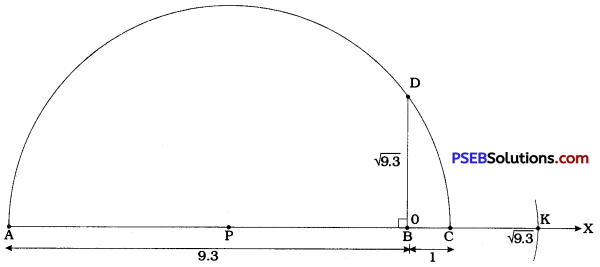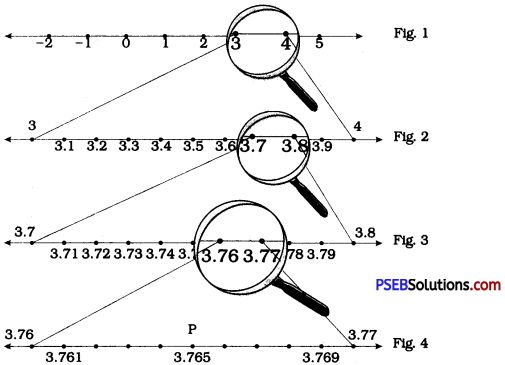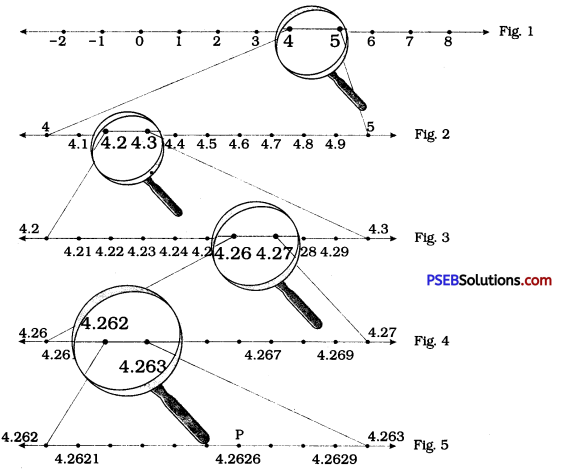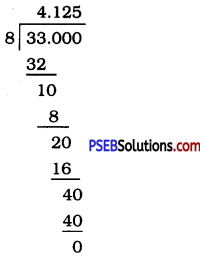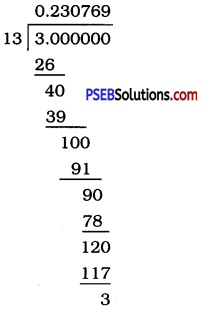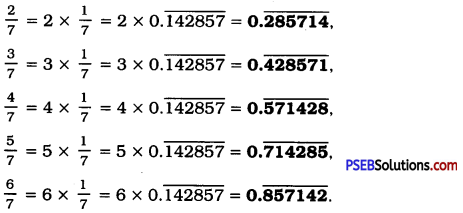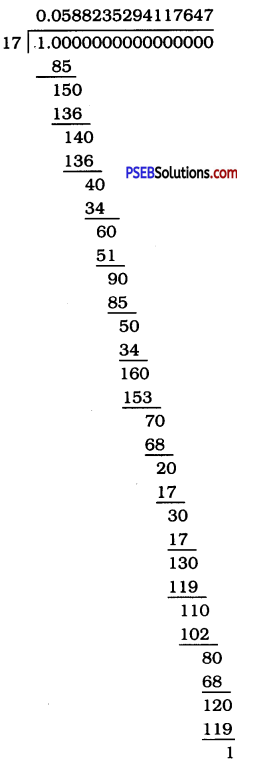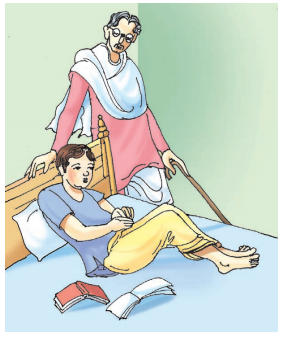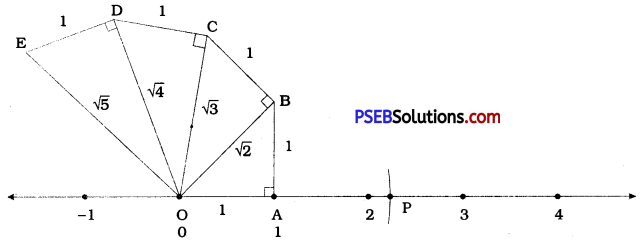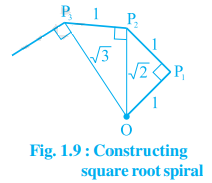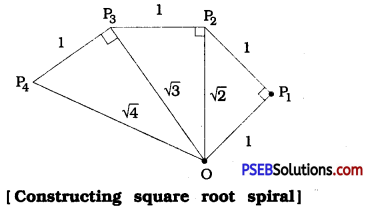Punjab State Board PSEB 9th Class English Book Solutions English Literature Book Solutions Chapter 5 The Last Leaf Textbook Exercise Questions and Answers.
PSEB Solutions for Class 9 English Literature Book Solutions Chapter 5 The Last Leaf
Question 1.
Who were Sue and Johnsy? What happened to Johnsy?
(स्य और जॉह्नसी कौन थी? जॉह्नसी को क्या हुआ था?)
Answer:
Sue and Johnsy were two young artists. Johnsy was seriously ill. She had pneumonia.
स्यू और जॉह्नसी दो युवा चित्रकार थीं। जॉह्नसी भयानक रूप से बीमार थी। उसे न्यूमोनिया हो गया था।
Question 2.
What did Johnsy feel about her illness ?
(जॉह्रसी अपनी बीमारी के बारे में क्या महसूस करती थी?)
Answer:
She thought she was not going to get well. She thought she would die with the falling of the last ivy leaf.
वह समझती थी कि वह स्वस्थ नहीं होगी। वह समझती थी कि वह बेल के अन्तिम पत्ते के गिरने के साथ ही मर जाएगी।
![]()
Question 3.
What did Sue do to make her feel happy ?
(स्यू ने उसे प्रसन्न महसूस करवाने के लिए क्या किया?)
Answer:
She talked about
उसने वस्त्रों और फैशनों के बारे में बातें की। उसने अपनी पेन्टिंग पर काम करते हुए सीटियां बजानी शुरू कर दी।
Question 4.
Why did Johnsy look at the ivy leaves carefully ?
(जॉह्रसी ने बेल के पत्तों की तरफ़ ध्यान से क्यों देखा?)
Answer:
Johnsy thought she was nearing her death with the falling of each leaf. She kept looking at the leaves carefully to see how many of them were left.
जॉह्नसी समझती थी कि प्रत्येक पत्ते के गिरने के साथ वह अपनी मृत्यु के अधिकाधिक नज़दीक पहुंच रही थी। वह पत्तों की तरफ ध्यान से देखती रही, यह जानने के लिए कि वे कितने बचे हुए थे।
Question 5.
Who was Behrman ?
(बरमैन कौन था?)
Answer:
He was an old painter. He was sixty years old. He had always desired to paint a masterpiece. But he could never begin it.
वह एक बूढ़ा पेन्टर था। वह साठ वर्ष की आयु का था। उसने सदा एक श्रेष्ठ रचना बनाने की इच्छा की थी। किन्तु वह इसे कभी शुरू न कर पाया।
![]()
Question 6.
Why did Sue call Behrman to her room ?
(स्यू ने बरमैन को अपने कमरे में क्यों बुलाया ?)
Answer:
An ivy creeper went up the wall opposite Johnsy’s window. Only one leaf was left on the creeper. Johnsy thought she would die when this last leaf fell. Sue wanted Behrman to paint a similar leaf on the wall. That was why she took Behrman to her room. She wanted to show him how the last leaf looked from there.
जॉह्नसी की खिडकी के सामने वाली दीवार पर सिरपेंचे की एक बेल चढ़ी हुई थी। बेल पर केवल एक ही पत्ता रह गया था। जॉह्नसी समझती थी कि वह मर जाएगी जब यह अन्तिम पत्ता गिर जाएगा। स्यू चाहती थी बरमैन इसी तरह का एक पत्ता दीवार के ऊपर चित्रित कर दे। इसी कारण वह बरमैन को अपने कमरे में ले गई। वह उसे दिखाना चाहती थी कि अन्तिम पत्ता देखने में वहां से कैसे लगता था।
Question 7.
How was Johnsy saved ?
(जॉह्रसी को कैसे बचाया गया?)
Answer:
Johnsy thought she would die when the last leaf fell. Sue thought of an idea. She asked an old painter to paint an ivy leaf on the wall. When Johnsy woke up the next morning, she saw one last leaf on the ivy. She regained her will to live. Thus she was saved.
जॉह्नसी सोचती थी कि जब आखिरी पत्ता गिरेगा, तो वह मर जाएगी। स्यू को एक विचार सूझ आया। उसने एक बूढ़े पेन्टर को दीवार पर सिरपेंचे का एक पत्ता चित्रित करने को कहा। जब जॉह्रसी अगली सुबह जागी, उसने बेल पर एक आखिरी पत्ता देखा। उस को जीने की इच्छा-शक्ति फिर से प्राप्त हो गई। इस तरह वह बच गई।
![]()
Question 8.
What happened to Behrman and why?
(बरमैन का क्या हुआ तथा क्यों ?)
Answer:
In order to save Johnsy, Behrman painted an ivy leaf on the wall. He worked in the night. It was a cold and windy night. It was raining also. Behrman got pneumonia. He died after two days.
जॉह्नसी को बचाने के लिए बरमैन ने दीवार के ऊपर सिरपेंचे का एक पत्ता चित्रित किया। वह रात में काम करता रहा। यह एक ठण्डी और तेज़ हवा वाली रात थी। वर्षा भी हो रही थी। बरमैन को न्यूमोनिया हो गया। वह दो दिन बाद मर गया।
Question 9.
What was Behrman’s masterpiece ?
(बरमैन की श्रेष्ठ कृति क्या थी?)
Answer:
It was the ivy leaf he had painted on the wall. It looked so real that Johnsy could not know it. She regained her will to live. Thus the painting proved Behrman’s masterpiece.
यह सिरपेंचे का वह पत्ता था जो उसने दीवार पर चित्रित किया था। यह इतना वास्तविक लगता था कि जॉह्नसी को इस का पता न चल पाया। उसने अपनी जीने की इच्छा फिर से प्राप्त कर ली। इस तरह वो पेन्टिंग बरमैन की श्रेष्ठ कृति साबित हुई।
Question 10.
Do you think Behrman was right in sacrificing his life ? Why?
(क्या आप समझते हैं कि बरमैन अपने जीवन का बलिदान करने में ठीक था? क्यों?)
Answer:
Behrman painted an ivy leaf on the wall. It looked so real that Johnsy could not know it. She regained her will to live. Thus she was saved. But Behrman got pneumonia and died. His sacrifice was not in vain. He had painted a masterpiece and also saved a life.
![]()
बरमैन ने दीवार के ऊपर सिरपेंचे का एक पत्ता चित्रित कर दिया। यह इतना वास्तविक लगता था कि जॉह्नसी जान न पाई। उसने जीवित रहने की अपनी इच्छा फिर से प्राप्त कर ली। इस तरह वह बच गई। किन्तु बरमैन को न्यूमोनिया हो गया और वह मर गया। उसका बलिदान व्यर्थ न गया। उसने एक श्रेष्ठ कृति चित्रित कर दी थी और एक जीवन भी बचा दिया था।
Objective Type Questions
Answer the following in one word / phrase / sentence :
Question 1.
Which great writer has written the story, ‘The Last Leaf”?
Answer:
O. Henry.
Question 2.
In which month had Johnsy fallen seriously ill?
Answer:
In the month of November.
Question 3.
What was the name of Johnsy’s friend ?
Answer:
Sue.
Question 4.
What did Sue hear suddenly ?
Answer:
She heard Johnsy whisper something.
Question 5.
Where was Johnsy’s bed in the room ?
Answer:
Near the window.
Question 6.
Name the vine that climbed the brick wall.
Answer:
Ivy.
![]()
Question 7.
Who was Behrman ?
Answer:
An old painter.
Question 8.
How did the leaf painted by Behrman look like?
Answer:
Exactly like the real leaf.
Question 9.
What did the unfallen leaf fill Johnsy with ?
Answer:
With a new hope.
Question 10.
What had Behrman desired all his life?
Answer:
To paint a masterpiece.
Complete the following:
1. Johnsy and Sue were two ………..
2. The window …………….. the brick wall of the opposite house.
3. The last ivy leaf fell during the …………..
4. Behrman painted a …………………. in green colour.
5. Sue couldn’t ……………….. the curtain as she needed the light.
6. Johnsy was running a high
Answer:
1. friends
2. overlooked
3. night
4. leaf
5. draw
6. temperature.
Write True or False against each statement :
1. It was summer and ivy leaves were falling.
2. Johnsy’s condition worsened with the falling of each ivy leaf.
3. Sue talked about films and fashions to amuse Johnsy.
4. Behrman was a very famous painter.
5. Behrman worked in rain and caught pneumonia.
6. Sue poured out her worries to David.
Answer:
1. False
2. True
3. False
4. False
5. True
6. False
![]()
Choose the correct option for each of the following:
Question 1.
What did Johnsy suffer from ?
(a) Pneumonia.
(b) Cancer.
(c) Jaundice.
(d) Cold.
Answer:
(a) Pneumonia.
Question 2.
Sue sent for the ………….
(a) painter
(b) carpenter
(c) chauffeur
(d) doctor.
Answer:
(d) doctor.
Question 3.
“I can’t draw the curtain for I need the light.” Who said these words ?
(a) Behrman.
(b) Sue.
(c) Johnsy.
(d) Lencho.
Answer:
(b) Sue.
Question 4.
The next morning, Sue came and sat on Johnsy’s ………..
(a) lap
(b) chair
(c) bed
(d) table.
Answer:
(c) bed
The Last Leaf Summary in English
The Last Leaf Introduction:
This story is based on the idea that our way of thinking has a deep effect on our life. If we have a positive approach towards life, we remain happy and enjoy good health. But if our way of thinking is negative, it always results in misery, unhappiness and even death. If a patient thinks positively and hopefully, it can help the doctor a great deal in curing him. Otherwise, he can’t hope to get well in spite of the best efforts on the part of the doctor.
The Last Leaf Summary in English
A girl named Johnsy catches pneumonia. Her bed was near the window which overlooked the brick wall of the opposite house. A very old ivy vine climbed half-way up the brick wall. It was winter and its leaves were falling. A strange idea took hold of Johnsy’s mind. She began to think that when the last ivy leaf fell, she would also pass away.

Her condition went from bad to worse with the falling of each leaf from the ivy. Her friend, Sue, tried her best to get this foolish idea out of Johnsy’s mind but in vain. When only one leaf was left on the ivy, Johnsy began to prepare herself for death. Then Sue thought of a plan to save the life of her friend. When Johnsy was asleep at night. Sue went to an old painter named Behrman. It was raining hard and the last ivy leaf fell during the night. Behrman painted a leaf in green colour, which looked exactly like the real leaf.
![]()
Next morning when Johnsy woke up, she began to wait for the last leaf to fall. But the leaf didn’t fall even after two days and two nights. It filled Johnsy with a new hope. Her condition began to improve. When she was completely out of danger, Sue told her that the last leaf was not the real leaf, but a mere painting by Behrman. She also told her that Behrman worked in rain during the night and caught pneumonia. He died the next day. Behrman had desired all his life to paint a masterpiece but had never been able to begin it. But the last leaf that he painted before his death, really proved a masterpiece.
The Last Leaf Summary in Hindi
The Last Leaf Introduction:
यह कहानी इस विचार पर आधारित है कि हमारे सोचने के ढंग का हमारे जीवन पर गहरा प्रभाव पड़ता है। यदि हम जीवन के प्रति सकारात्मक दृष्टिकोण रखेंगे तो हम प्रसन्न और स्वस्थ रहेंगे। किन्तु यदि हमारे सोचने का ढंग नकारात्मक है तो इसका परिणाम दुःख और यहां तक कि मृत्यु भी हो सकता है। यदि एक रोगी सकारात्मक और आशापूर्ण ढंग से सोचता है तो डॉक्टर को उसका इलाज करने में बहुत मदद मिल सकती है। अन्यथा, डॉक्टर के पूरे प्रयत्नों के बावजूद वह अच्छा होने की आशा नहीं कर सकता है।
The Last Leaf Summary in Hindi
कहानी का विस्तृत सार ‘ जॉह्नसी नाम की एक लड़की को न्यूमोनिया हो जाता है। उसका बिस्तर उस खिड़की के पास था जो सामने वाले घर की ईंट की दीवार की दिशा में खुलती थी। एक बहुत पुरानी सिरपेंचे की लता ईंट की दीवार की आधी दूर ऊपर तक चढ़ी हुई थी। शरद ऋतु थी और उसके पत्ते झड़ रहे थे। जॉह्नसी के दिमाग में एक अजीब विचार आया। वह सोचने लगी कि जब सिरपेंचे का आखिरी पत्ता गिरेगा तो वह भी मर जाएगी। सिरपेंचे से प्रत्येक पत्ते के गिरने के साथ उसकी हालत बद से बदतर होती गई।
उसकी सहेली स्यू ने जॉह्नसी के दिमाग से यह मूर्खतापूर्ण विचार निकालने की बहुत कोशिश की किन्तु सब व्यर्थ गया। जब सिरचे पर केवल एक पत्ता रह गया तो जॉह्नसी स्वयं को मृत्यु के लिए तैयार करने लगी। तब स्यू ने अपनी सहेली की जान बचाने के लिए एक योजना सोची। रात को जब जॉह्नसी सोई हुई थी तो स्यू बरमैन नाम के एक बूढ़े चित्रकार के पास गई। जोरों की वर्षा हो रही थी और रात को सिरपेंचे का आखिरी पत्ता गिर गया। बरमैन ने एक पत्ते को हरे रंग में रंगा जो बिल्कुल असली पत्ते की भान्ति प्रतीत होता था। अगली सुबह जॉह्नसी जागी तो वह आखिरी पत्ते के गिरने की प्रतीक्षा करने लगी। परन्तु दो दिन और दो रातों के बाद भी पत्ता नहीं गिरा।
इसने जॉह्नसी के मन में एक नई आशा भर दी। उसकी हालत सुधरने लगी। जब वह पूरी तरह से खतरे से बाहर हो गई तो स्यू ने उसे बताया कि वह आखिरी पत्ता असली पत्ता नहीं था बल्कि मात्र बरमैन के द्वारा की हुई चित्रकारी थी। उसने उसे यह भी बताया कि रात को बरमैन ने वर्षा में काम किया और उसे न्यूमोनिया हो गया। अगले दिन वह मर गया। बरमैन ने जीवन भर एक उत्तम चित्र बनाने की इच्छा की थी लेकिन वह उसे कभी आरम्भ नहीं कर पाया था। किन्तु अपनी मृत्यु के पहले उसने जो आखिरी पत्ते की चित्रकारी की थी, वास्तव में वही उसकी अति उत्तम कलाकृति सिद्ध हुई।
The Last Leaf Translation in Hindi
(Page 40)
कठिन शब्दार्थ-1. artist – कलाकार; 2. worried – चिन्तित; 3. respond – जवाब देना; 4. whispered – फुसफुसाई, धीरे से बोली; 5. anxiously – उत्सुकतापूर्वक; 6. creeper – लता, बेल; 7. shedding-झड़ रहे।
अनुवाद-स्यू और जॉहसी, दो युवा कलाकार, एक छोटे घर में इकट्ठी रहती थीं। उनका घर एक पुराने मकान की तीसरी मंजिल पर था। नवम्बर के महीने में जॉह्नसी काफ़ी गम्भीर रूप से बीमार पड़ गयी। उसे न्यूमोनिया हुआ था। वह बिना हिले बिस्तर पर पड़ी खिड़की के बाहर देखती रहती। उसकी सहेली स्यू बहुत चिन्तित हो गयी। उसने एक डॉक्टर को बुलवा भेजा। हालांकि डॉक्टर रोज़ उसको देखने आता था पर उसकी हालत में कोई सुधार नहीं था। एक दिन डॉक्टर जॉह्रसी को देखने के लिए आया, तो वह स्यू को एक तरफ ले गया और उससे पूछा, “क्या जॉह्नसी को कोई बात परेशान कर रही है?” “नहीं,” स्यू ने जवाब दिया। “पर आप क्यों पूछ रहे हैं ?”
![]()
डॉक्टर ने कहा, “ऐसा प्रतीत होता है कि जॉह्नसी के दिमाग़ में यह बात बैठ गयी है कि वह दोबारा स्वस्थ नहीं हो पायेगी। अगर वह जीना नहीं चाहती तो दवाओं से उसे कोई लाभ नहीं होगा।” । स्यू अपनी तरफ से पूरी कोशिश करती, कि जॉह्नसी अपने आसपास की चीज़ों में दिलचस्पी ले। वह फैशन और परिधानों के बारे में बातें करती, पर जॉह्नसी कोई जवाब नहीं देती। वह बस बिस्तर पर निश्चल लेटी रहती। स्यू अपना ड्राइंग-बोर्ड लेकर जॉह्नसी के कमरे में आ गयी और चित्र बनाने लगी। जॉह्रसी का ध्यान उसकी बीमारी से हटाने के लिए, वह चित्र बनाते हुए सीटी बजाने लगी।
अचानक स्यू ने जॉह्नसी को धीरे से कुछ कहते हुए सुना। वह जल्दी से उसके बिस्तर के पास गयी और उसको उलटी गिनती करते हुए सुना। वह खिड़की के बाहर देख रही थी और कह रही थी, ‘बारह!’ थोड़ी देर बाद वह बुदबुदाई ‘ग्यारह’, फिर ‘दस’, फिर ‘नौ’, फिर ‘आठ’, ‘सात’। स्यू ने उत्सुकतापूर्वक खिड़की से बाहर देखा। उसने उनकी खिड़की के सामने वाली दीवार पर आधी ऊँचाई तक चढ़ी सिरपेंचे की एक पुरानी लता देखी। बाहर की ठण्डी हवा में उस लता के पत्ते झड़ कर गिर रहे थे।
(Page 41 – 42)
कठिन शब्दार्थ-1. autumn – पतझड़; 2. finality – निश्चयात्मकता, निर्णयात्मकता; 3. nonsense – बकवास, मूर्खतापूर्ण बात; 4. soup-शोरबा; 5. curtain – परदा; 6. begged—प्रार्थना की।
अनुवाद-“क्या बात है प्रिय?” स्यू ने पूछा।
“छ:,” जॉह्रसी धीरे से बुदबुदायी। “अब वे पहले से तेज़ गति से गिर रहे हैं। तीन दिन पहले वहां लगभग सौ थे।
अब केवल पाँच शेष रह गए हैं।”
“पतझड़ का मौसम है,” स्यू बोली, “और पत्ते तो गिरेंगे ही।”
“जब आखिरी पत्ता गिरेगा, तब मैं मर जाऊंगी,” जॉह्नसी ने विश्वास से कहा।
“मुझे तो यह बात तीन दिन पहले से ही पता है।”
“ओह, कितनी मुर्खता भरी बात है!” स्यू ने जवाब दिया।
“उन पुराने सिरपेंचे के पत्तों का तुम्हारे स्वस्थ होने से क्या सम्बन्ध हो सकता है? डॉक्टर को विश्वास है कि तुम अच्छी हो जाओगी।”
जॉह्रसी ने कुछ नहीं कहा। स्यू गयी और उसके लिए एक कटोरा शोरबा ले आयी।
“मुझे शोरबा नहीं चाहिए,” जॉह्नसी ने कहा। “मुझे भूख नहीं लगी अब केवल चार पत्ते शेष रह गए हैं।
मैं अंधेरा होने से पहले अन्तिम पत्ते को गिरता हुआ देखना चाहती हूं। फिर मैं हमेशा के लिए सो जाऊंगी।”
स्यू जॉह्रसी के बिस्तर पर बैठ गयी, उसे चूमा और बोली, “तुम नहीं मरोगी। मैं पर्दा नहीं कर सकती क्योंकि मुझे रोशनी की ज़रूरत है। मैं चित्र को पूरा करके हमारे लिए थोड़े पैसे प्राप्त करना चाहती हूँ। मेरी प्यारी सहेली,” उसने जॉह्रसी से प्रार्थना की, “कृपया वादा करो कि जब तक मैं चित्र बना रही हूँ तब तक तुम खिड़की से बाहर नहीं देखोगी।”
![]()
(Page 42-43)
कठिन शब्दार्थ-1. peacefully-शान्तिपूर्वक; 2. miner-खनिक; 3. masterpiece-सर्वश्रेष्ठ कलाकृति; 4. poured out-उंडेल दी, पूरी बात बता दी; 5. convinced—विश्वास होना; 6. stupid-मूर्ख; 7. tiptoed-चुपके से अंदर गए; 8. peeped out-बाहर झांक कर देखा; 9. icy-बहुत ठण्डा ; 10. feebleकमजोर; 11. nervous-घबराई हुई; 12. reluctantly–अनिच्छा से; 13. exclaimed—विस्मयपूर्वक कहा; 14. vine–बेल; 15. fierce – भयंकर, तेज़।
अनवाद-“ठीक है,” जॉह्नसी ने कहा। “अपना चित्र जल्दी पुरा करो क्योंकि मैं अन्तिम पत्ते को गिरता देखना चाहती हूँ। मैं इन्तज़ार करते-करते थक चुकी हूं। मुझे मरना है, इसलिए उन बेचारे, थके हुए पत्तों की तरह शान्ति से चले जाने दो।”
“सोने की कोशिश करो,” स्यू ने कहा। “मुझे एक बूढ़े खनिक की तस्वीर बनानी है। मैं बरमैन को अपना मॉडल बनने के लिए बुला लेती हूँ।”वह जल्दी से नीचे चली गयी। बरमैन मकान की सबसे नीचे वाली मंजिल पर रहता था। वह साठ वर्ष की आयु का एक बूढ़ा पेंटर था। जीवन भर उसका सपना रहा था कि वह कोई श्रेष्ठ कृति बनाये, परन्तु यह अभी तक एक सपना ही था। स्यू ने अपनी सारी व्यथा बरमैन को बता दी। उसने उसे बताया कि किस प्रकार जॉह्नसी को यह विश्वास था कि आखिरी पत्ते के गिरने के साथ ही उसकी मृत्यु हो जाएगी।
“क्या वह मूर्ख है?” बरमैन ने पूछा। “वह इतनी नासमझ कैसे हो सकती है?” “उसे काफ़ी तेज़ बुखार है,” स्यू ने शिकायत की। “वह खाने-पीने से इन्कार कर रही है और मुझे इस बात की बहुत चिन्ता है।” “मैं तुम्हारे साथ चलकर जॉह्नसी को देखुंगा,” बरमैन ने कहा। वे चुपचाप जॉह्रसी के कमरे में गए। जॉह्नसी सो रही थी। स्यू ने पर्दा कर दिया और वे दूसरे कमरे में चले गए। उसने खिड़की के बाहर झांका। लता पर केवल एक ही पत्ता था। बड़ी तेज़ वर्षा हो रही थी और बर्फीली हवा चल रही थी। ऐसा प्रतीत हो रहा था मानो यह पत्ता अब किसी भी पल गिर जाएगा। बरमैन ने एक शब्द भी नहीं कहा। वह वापस अपने कमरे में चला गया।
जॉह्रसी अगली सुबह सोकर उठी। दुर्बल आवाज़ में उसने स्यू को पर्दा हटाने के लिए कहा। स्यू घबराई हुई थी। उसने बड़ी अनिच्छा से पर्दा हटा दिया। “ओह,” लता को देखते ही स्यू विस्मय से बोली। “देखो, उस लता पर अब भी एक पत्ता है। यह काफ़ी हरा और स्वस्थ प्रतीत हो रहा है। आंधी और तेज़ हवाओं के बावजूद यह गिरा नहीं।” “मैंने रात को तेज़ हवाओं की आवाज़ सुनी थी,” जाह्नसी ने कहा, “मैंने सोचा कि यह रात को गिर गया होगा। यह आज ज़रूर गिर जाएगा, फिर मैं मर जाऊंगी।”
(Page 43-44)
कठिन शब्दार्थ-1. lovingly – प्यार से; 2. cooperated – सहयोग दिया; 3. depressed – निराश; 4. gloomy – उदास; 5. wicked-दुष्ट; 6. sin – पाप; 7. hugged – गले से लगाया; 8. brightly – खुशी से; 9. confident-विश्वस्त; 10. janitor-चौकीदार; 11. paints – चित्रकारी के रंग; 12. flutter – फड़फड़ाना; 13. masterpiece – श्रेष्ठ-कृति, सर्वोत्तम रचना।
अनुवाद-“तुम नहीं मरोगी,” स्यू ने जोश से कहा। “तुम्हें अपने दोस्तों के लिए जीना है। अगर तुम मर गयी तो मेरा क्या होगा?” जॉह्नसी धीरे से मुस्करायी और उसने अपनी आँखें बन्द कर ली। हर एक घण्टे के बाद वह खिड़की से बाहर देखती और पत्ते को वहीं पाती। वह लता से चिपका हुआ प्रतीत होता था। शाम को फिर से आंधी आयी, पर वह पत्ता नहीं गिरा। जॉह्नसी लेटे हुए काफ़ी देर तक पत्ते को देखती रही। फिर उसने स्यू को बुलाया।
“मैं एक बरी लडकी बन गयी थी। तुमने इतने प्यार से मेरी देखभाल की पर मैंने तुम्हें सहयोग नहीं दिया। मैं दुःखी और उदास थी। उस आखिरी पत्ते ने मुझे दिखा दिया कि मैंने कितना बुरा व्यवहार किया है। मुझे पता चल गया है कि मृत्यु की इच्छा करना पाप है।”
स्यू ने जॉह्रसी को गले लगा लिया। फिर उसे बहुत सारा गर्म शोरबा और एक दर्पण लाकर दिया। जॉह्नसी ने अपने बालों में कंघी की और प्रफुल्लता से मुस्कुरायी। दोपहर को डॉक्टर आया। अपने मरीज़ का परीक्षण करने के बाद उसने स्यू ने कहा, “अब जॉह्नसी के पास जीने की इच्छा है। मुझे विश्वास है कि वह जल्दी ही अच्छी हो जाएगी। अब मुझे नीचे जाकर बरमैन को देखना चाहिए। वह भी न्यूमोनिया से ग्रस्त है। पर मुझे उसके बचने की कोई आशा नहीं है।”
![]()
अगली सुबह स्यू जॉह्नसी के बिस्तर पर आकर बैठ गयी। जॉह्नसी का हाथ अपने हाथों में लेते हुए उसने कहा, “मेरे पास तुम्हें बताने के लिए कुछ है। बरमैन महोदय की आज सुबह न्यूमोनिया से मृत्यु हो गयी। वह केवल दो दिन बीमार रहा। पहले दिन चौकीदार ने उसे उसके बिस्तर पर पाया। उसके कपड़े और जूते गीले थे और वह कांप रहा था। वह उस तूफ़ानी रात को घर से बाहर रहा था।” “फिर उन्हें उसके बिस्तर के पास एक सीढ़ी और एक जलती हुई लालटेन मिली। फर्श पर सीढ़ी के पास कुछ ब्रुश और हरा और पीला रंग भी था। प्रिय जॉह्नसी,” स्यू ने कहा, “खिड़की के बाहर देखो। उस सिरपेंचे के पत्ते को देखो। क्या तुम्हें यह हैरानी नहीं हुई कि इतनी तेज़ हवा के चलने के बावजूद भी यह फड़फड़ाता क्यों नहीं है? यह बरमैन की श्रेष्ठ-कृति है। उसने इसे उस रात चित्रित किया था जब बेल का आखिरी पत्ता गिर गया था।”
